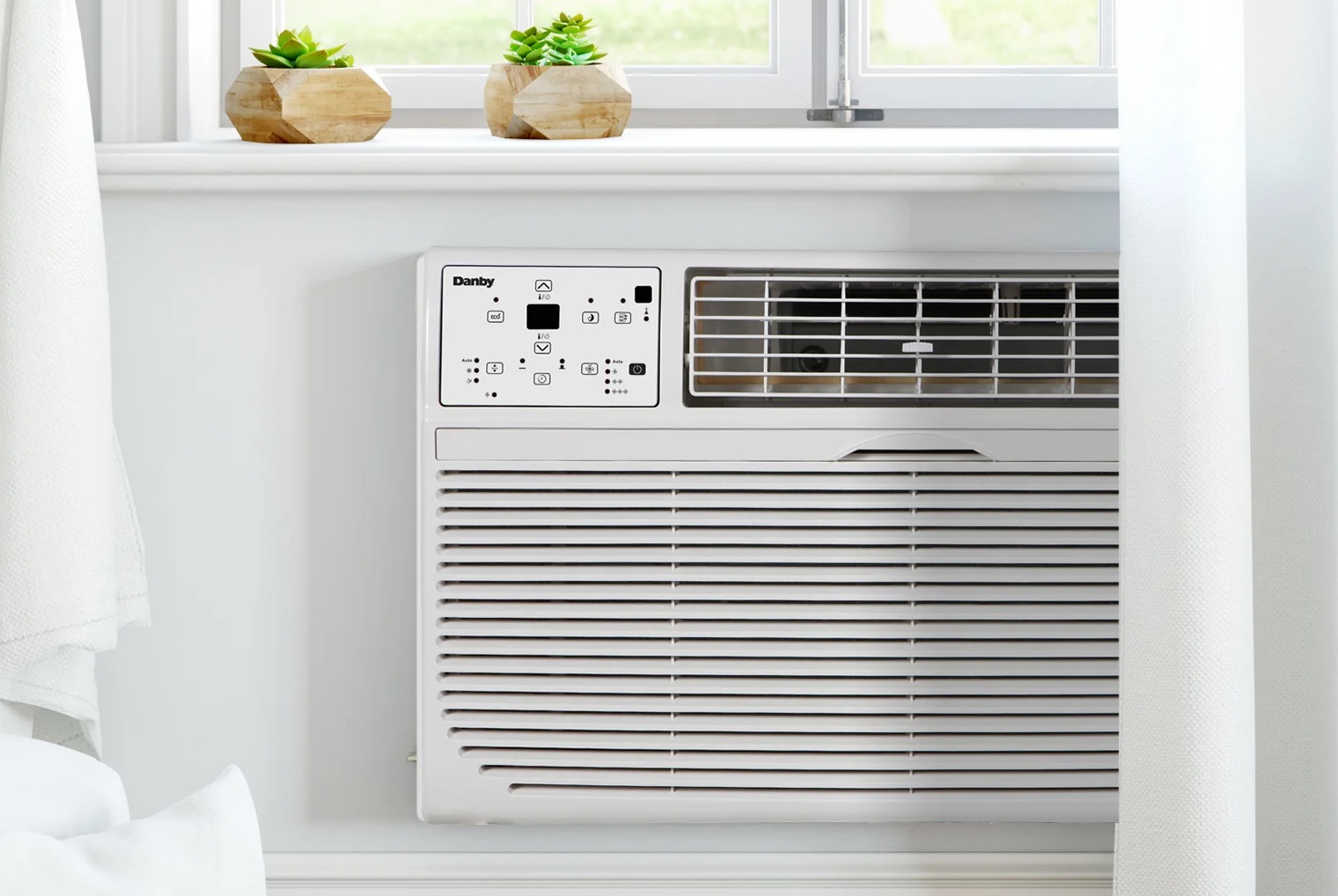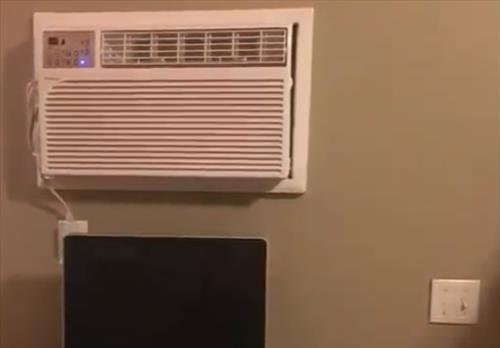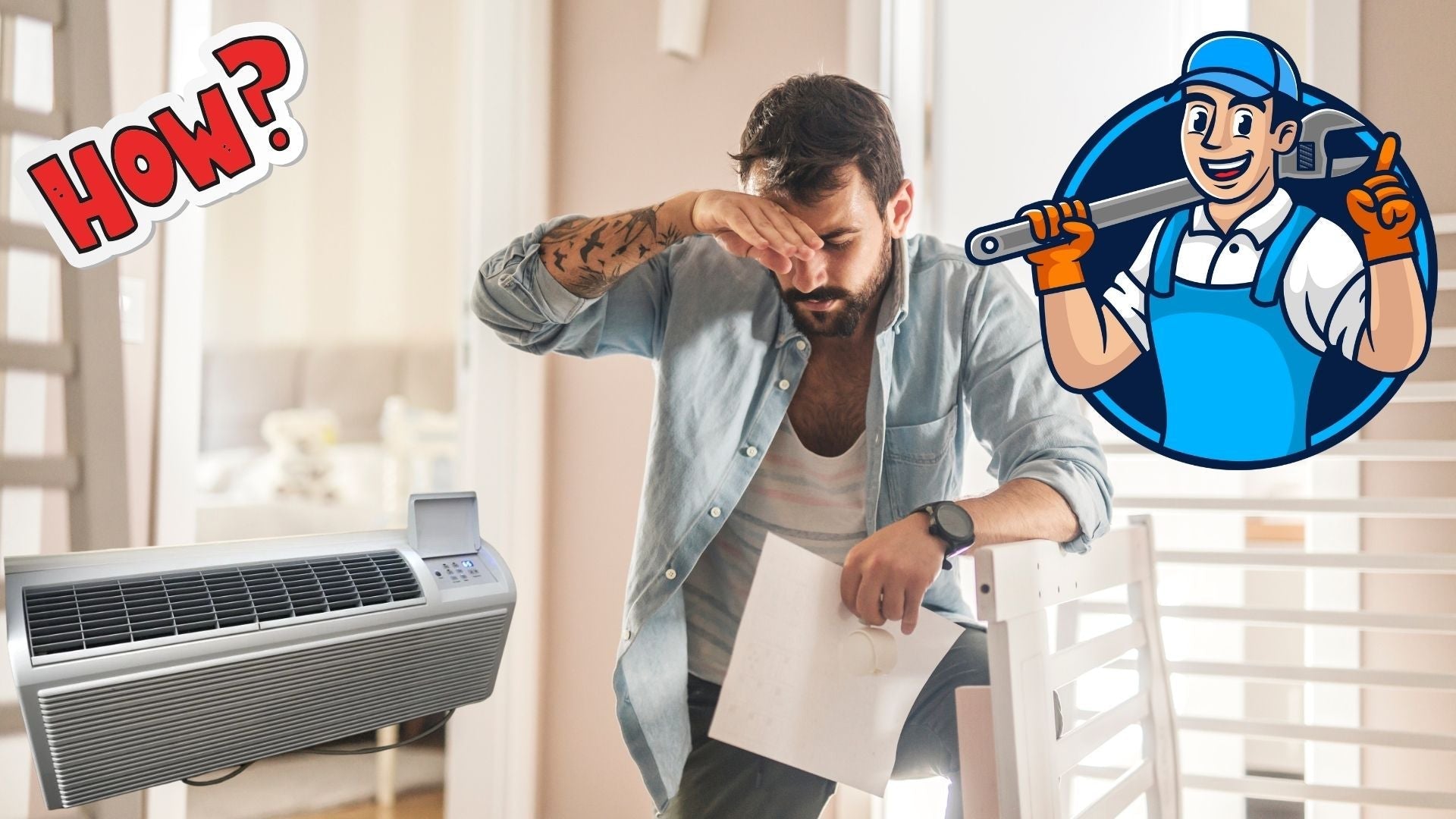Replace Through The Wall Air Conditioner

Frequently Asked Questions About Replacing Your Through-The-Wall Air Conditioner
Through-the-wall air conditioners (TTW ACs) offer a convenient cooling solution, especially in apartments, condos, and older buildings. However, like all appliances, they eventually need replacing. This FAQ addresses common questions about replacing your TTW AC, helping you make informed decisions.
What are the key signs that my through-the-wall AC needs replacing?
Knowing when to replace your TTW AC can save you money in the long run. Look for these telltale signs:
- Inconsistent Cooling: If your AC struggles to cool the room, even on the highest setting, it might be nearing the end of its life.
- Unusual Noises: Loud rattling, buzzing, or grinding sounds indicate potential mechanical issues. While some noises might be fixable, persistent, loud noises often signal internal component failure.
- Increased Energy Bills: A sudden spike in your electricity bill without a change in usage habits could mean your AC is working harder to achieve the same cooling, resulting in higher energy consumption.
- Frequent Repairs: If you're constantly calling for repairs, the cumulative cost can quickly surpass the price of a new unit. A new unit will be more energy efficient too.
- Age: Most TTW ACs last between 8-10 years. If your unit is older than that, it's likely losing efficiency and may be due for replacement.
- Visible Damage: Rust, corrosion, or physical damage to the unit can compromise its performance and safety.
- Foul Odors: Persistent musty or moldy smells emanating from the AC may indicate mold growth within the unit, potentially impacting air quality.
Can I replace my through-the-wall AC unit myself, or do I need a professional?
While some DIY enthusiasts might be tempted to tackle this project, it's generally recommended to hire a professional HVAC technician for several reasons:
- Electrical Safety: AC units involve electrical wiring. Incorrect wiring can lead to electrical shock, fire hazards, or damage to the unit. A professional has the training and experience to handle electrical connections safely.
- Proper Installation: Correct installation is crucial for optimal performance and efficiency. A professional will ensure the unit is properly sealed, level, and functioning correctly. Improper installation can cause air leaks, reduced cooling capacity, and increased energy consumption.
- Unit Size and Compatibility: Choosing the right size AC unit is vital for effective cooling. A professional can assess your room size and insulation to recommend the appropriate BTU (British Thermal Units) rating. They can also ensure the new unit is compatible with your existing wall sleeve.
- Warranty: Many AC manufacturers require professional installation for the warranty to be valid. DIY installation may void the warranty, leaving you responsible for any future repair costs.
- Refrigerant Handling: Some older AC units may contain refrigerants that require special handling and disposal. A professional is trained to handle these substances safely and according to environmental regulations.
- Building Codes and Permits: Depending on your location, replacing a TTW AC may require permits. A professional is familiar with local building codes and can ensure compliance.
Attempting a DIY installation without the necessary knowledge and experience can be risky and may ultimately cost you more in the long run. Hiring a qualified technician is the safest and most reliable option.
How do I choose the right replacement through-the-wall AC unit? What size do I need?
Selecting the right replacement involves considering several factors:
- BTU Rating: This measures the cooling capacity of the unit. A higher BTU rating is suitable for larger rooms. The general rule of thumb is 20 BTU per square foot of living space. However, other factors can influence this, such as:
- Room Size: Calculate the square footage of the room you need to cool (length x width).
- Ceiling Height: Higher ceilings may require a more powerful unit.
- Sun Exposure: Rooms with significant sun exposure will need more cooling capacity.
- Insulation: Poor insulation can lead to heat loss and require a larger BTU rating.
- Number of Occupants: More people in the room generate more heat, requiring a higher BTU.
- Heat-Generating Appliances: If the room contains heat-generating appliances like computers or stoves, factor that into the BTU calculation.
- Wall Sleeve Compatibility: TTW AC units are designed to fit into a wall sleeve. Measure your existing sleeve to ensure the new unit is compatible. If not, you may need to replace the sleeve as well, which adds to the complexity and cost of the project.
- Energy Efficiency: Look for units with a high Energy Efficiency Ratio (EER) or a Seasonal Energy Efficiency Ratio (SEER). Higher EER/SEER ratings indicate better energy efficiency and lower operating costs. Energy Star certified models meet strict energy efficiency guidelines.
- Features: Consider features like:
- Remote Control: For convenient operation.
- Programmable Timer: To schedule cooling for specific times.
- Sleep Mode: Gradually increases the temperature overnight for energy savings and comfort.
- Multiple Fan Speeds: For customizable airflow.
- Air Filter: Look for units with easily replaceable air filters to improve air quality. HEPA filters are particularly effective at removing allergens and pollutants.
- Wi-Fi Connectivity: Allows you to control the AC unit remotely using a smartphone or tablet.
- Noise Level: Some AC units are quieter than others. Check the decibel (dB) rating to choose a unit that won't disrupt your peace and quiet.
- Brand Reputation: Research different brands and read reviews to get an idea of their reliability and performance.
- Budget: TTW AC units range in price depending on their BTU rating, features, and brand. Set a budget before you start shopping.
Consulting with an HVAC professional can help you determine the optimal BTU rating and features for your specific needs and ensure you choose a unit that is compatible with your existing wall sleeve.
What is the average cost to replace a through-the-wall AC unit?
The cost of replacing a TTW AC unit varies depending on several factors:
- Unit Price: The price of the AC unit itself depends on its BTU rating, energy efficiency, features, and brand. Expect to pay anywhere from $300 to $1000 or more for the unit alone.
- Installation Costs: Professional installation typically costs between $150 and $500, depending on the complexity of the job and the installer's rates. Factors that can affect installation costs include:
- Wall Sleeve Replacement: If you need to replace the wall sleeve, this will add to the installation cost.
- Electrical Work: If any electrical work is required, such as upgrading the wiring or adding a dedicated circuit, this will also increase the cost.
- Permits: Obtaining necessary permits may incur additional fees.
- Accessibility: Difficult access to the installation location can also increase labor costs.
- Disposal Fees: Some installers may charge a fee for disposing of your old AC unit.
In total, you can expect to pay anywhere from $450 to $1500 or more to replace a through-the-wall AC unit, including the cost of the unit and professional installation. Get quotes from multiple installers to compare prices and services.
Do I need to replace the wall sleeve when I replace my AC unit?
Not always. The need to replace the wall sleeve depends on a few factors:
- Compatibility: If your new AC unit is the same size and dimensions as your old one, and the sleeve is in good condition, you may be able to reuse the existing sleeve.
- Condition: If the existing wall sleeve is rusted, damaged, or corroded, it's best to replace it. A damaged sleeve can compromise the unit's performance and allow air leaks.
- Unit Design: Some newer AC units are designed to fit into specific wall sleeves. If your old sleeve isn't compatible with the new unit, you'll need to replace it.
- Age: If the wall sleeve is very old, it might be a good idea to replace it regardless of its condition. Older sleeves may not be as well-insulated as newer models.
Your HVAC technician can inspect your existing wall sleeve and advise you on whether or not it needs to be replaced. Replacing the sleeve adds to the cost and complexity of the project, so it's important to get a professional assessment.
How can I maintain my new through-the-wall AC to prolong its life and ensure efficient operation?
Proper maintenance can extend the lifespan of your AC unit and ensure it operates efficiently, saving you money on energy bills and repair costs. Here are some key maintenance tips:
- Clean or Replace Air Filters Regularly: Dirty air filters restrict airflow, forcing the AC unit to work harder and reducing its cooling capacity. Clean or replace the air filter every 1-3 months, or more frequently if you have pets or allergies.
- Clean the Condenser Coils: The condenser coils are located on the outside of the unit. Over time, they can accumulate dust, dirt, and debris, reducing their efficiency. Clean the coils at least once a year, or more frequently if you live in a dusty environment. You can use a soft brush or a vacuum cleaner with a brush attachment to clean the coils.
- Check for Leaks: Inspect the unit regularly for any signs of leaks, such as water stains or dripping. Leaks can indicate a problem with the unit's seals or drainage system. Contact a professional to repair any leaks promptly.
- Keep the Area Around the Unit Clear: Make sure the area around the AC unit is free of obstructions, such as furniture, curtains, or plants. This will allow for proper airflow and prevent the unit from overheating.
- Winterize the Unit: If you live in a cold climate, winterize your AC unit to protect it from the elements. This may involve removing the unit from the wall sleeve and storing it in a dry place, or covering the unit with a weatherproof cover.
- Schedule Professional Maintenance: Have your AC unit professionally inspected and serviced at least once a year. A professional technician can identify and address potential problems before they become major issues.
What are some energy-saving tips for using my through-the-wall AC?
Using your TTW AC efficiently can help you save money on your energy bills. Here are some tips:
- Set the Thermostat Appropriately: Avoid setting the thermostat too low. Aim for a comfortable temperature that doesn't require the AC to run constantly. A setting of 78°F (26°C) is generally recommended for energy efficiency.
- Use a Programmable Thermostat: Program the thermostat to automatically adjust the temperature when you're not home or when you're sleeping. This can significantly reduce your energy consumption.
- Use Fans: Use ceiling fans or portable fans to circulate the air and distribute the cool air more evenly. This can allow you to set the thermostat a few degrees higher without sacrificing comfort.
- Close Curtains and Blinds: During the hottest part of the day, close curtains and blinds to block out sunlight and reduce heat gain.
- Seal Air Leaks: Seal any air leaks around windows, doors, and the wall sleeve to prevent cool air from escaping.
- Limit Heat-Generating Activities: Avoid using heat-generating appliances like ovens and dryers during the hottest part of the day.
- Ensure Proper Ventilation: Make sure your home is properly ventilated to prevent moisture buildup and improve air quality.
- Clean the Air Filter Regularly: A clean air filter improves airflow and reduces energy consumption.










